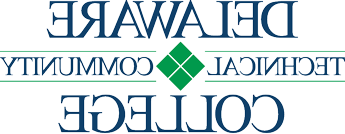Institutional Effectiveness
Institutional Effectiveness can be defined as the evidence-based demonstration that an institution is achieving its mission and key goals. Delaware Tech’s Institutional Effectiveness Structure (PDF), which was implemented in 2004-05, provides the framework for acquiring this evidence through the meaningful assessment of its institutional outcomes, student learning outcomes, and educational support outcomes. Information from these assessments is used both to monitor the degree to which the College is achieving its mission and to identify areas and methods for improvement as appropriate. In 2009, Delaware Tech won the CHEA Award for Institutional Progress in Student Learning Outcomes for its Institutional Effectiveness Structure.
The Assessment Milestone Calendar (PDF) illustrates the timeframe in which assessment activities integrate with the planning and budgeting process timeframe to close the Planning, Budgeting, and Assessment loop at all levels.
Components of the Institutional Effectiveness Structure: Mission Goal, Student Learning, and Education Support Assessment
Mission Goal Assessment
Mission Goal Outcomes Assessment is intended to prove and improve the College’s effectiveness in achieving its institutional outcomes and fulfilling its purpose. The Mission Goals describe the aims the College will achieve through the combined efforts of faculty, staff, and administrators working across the College in academic programs and service units in achieving the College Mission. To this end, Mission Goal outcomes assessment provides the foundation for actions and communication focused on institutional improvement as well as transparent accountability.
Delaware Tech annually assesses a defined set of intended outcomes related to each of the College’s seven mission goals for comparison with their optimal performance benchmarks. The annual Mission Goal Assessment Report (PDF)for the purpose summarizes the results of these activities.
Mission Goal Leadership Groups, appointed by President’s Council, are responsible for developing and implementing these annual institutional-level assessment plans for each Mission Goal in accordance with the Institutional Effectiveness Structure.
Student Learning Outcomes Assessment
Student Learning Outcomes Assessment (SLOA) is a process designed to assess student learning at the program level for the purpose of accountability and improvement. The College's SLOA Assessment cycle ensures all Core Curriculum Competencies (CCC) and Program Graduate Competencies (PGCs) for each program are assessedinst within a three-year period. Program Completer Competencies (PCCs), the College student learning goals for non-credit programs, are assessed within a four-year period.
SLOA is a faculty-driven process guided by campus faculty members who serve as assessment coordinators. Support and oversight is provided by the Vice Presidents and Campus Directors, the Vice President for Academic Affairs, the Director of Planning and Institutional Effectiveness, and the Campus Deans of Instruction in accordance with the Student Learning Outcomes Assessment (SLOA) Guidelines, Action Steps, and Timelines (PDF).
Educational Support Outcomes Assessment
Educational Support Outcomes Assessment (ESOA) is a process for assessment of service delivery to students, faculty, and staff for the purpose of improvement in achieving the College Mission and to contribute to an environment conducive to learning and success.
Vice Presidents of each division, the Vice President for Academic Affairs, the Vice Presidents and Campus Directors, and the Director of Planning and Institutional Effectiveness are responsible for the development, coordination, and oversight of the Educational Support Outcomes Assessment component of the Institutional Effectiveness Structure (PDF) with consensus support from faculty and staff.

